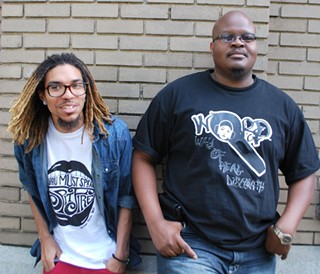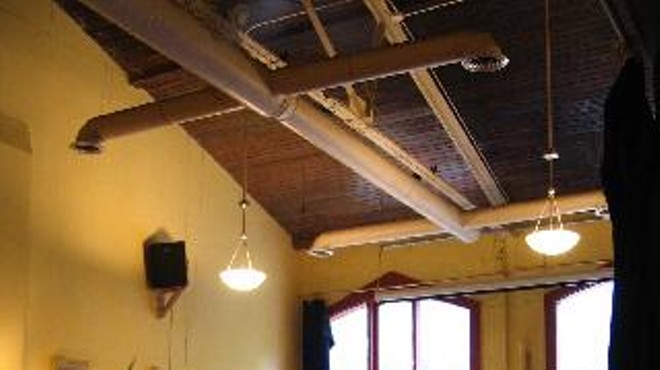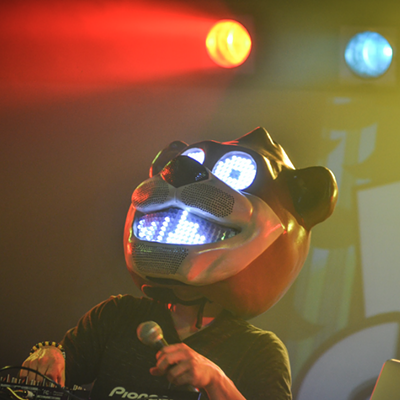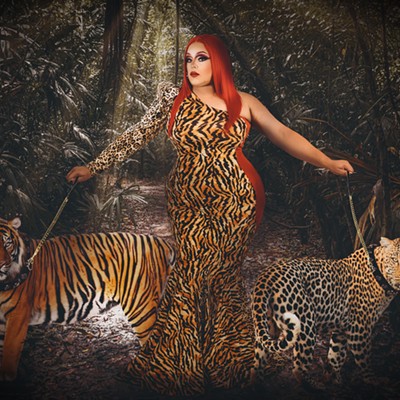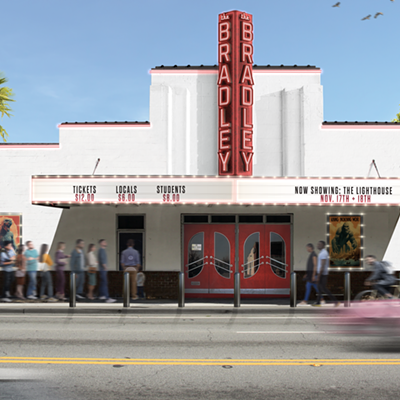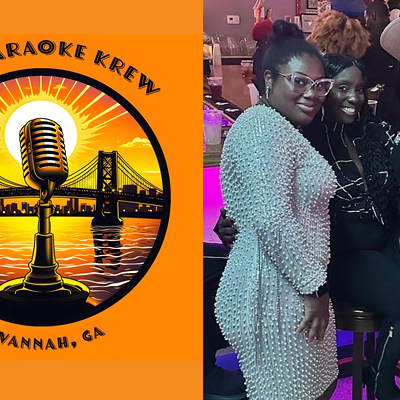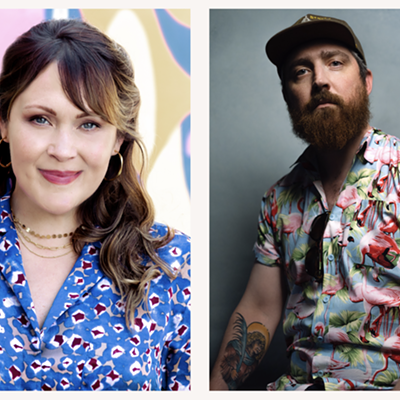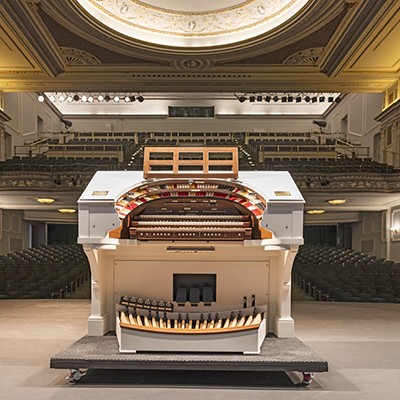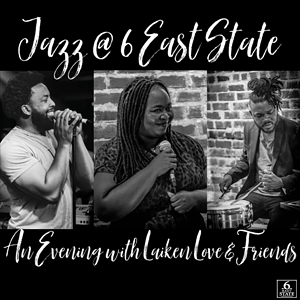More than a means of self-expression, more than performance art, and certainly more than mere entertainment, spoken word is a form of direct communication between artist and audience.
It can be joyous, it can be rough, it can be funny, it can be enlightening. Sometimes it can be uncomfortable or hard to hear. One thing spoken word is, always, is real.
Marquice Williams, who took over the reins of Savannah’s Spitfire Poetry Group after the 2011 passing of founder Clinton D. Powell, understands the power and the passion of spoken verse. With Powell as his mentor, Williams (who splits his Spitfire responsibilities with Joshua Davis) came to realize that writing and “spitting” poetry, be it simple or complex, is a way to free whatever beasts happen to live inside you.
Through the 21st Century Community Learning Center, Williams, 23, teaches the tension-release value of spoken word at Chatham area high schools.
This week finds Spitfire, along with the Savannah State University-based W.O.R.D. (Way of Real Discovery) bringing multiple spoken word events to the city. The Savannah Spoken Word Festival—begun in 2005 by Powell and his like-minded collaborators —is a poly-syllabic celebration of the ways, means and techniques of spreading the word. Or, to be precise, the words.
We met with Williams, and W.O.R.D. founder Jon M. Lattimore, 31, to get to the bottom of things.
What does this kind of creative expression do for a person?
Marquice Williams: This is therapy. The way I was taught by Clinton Powell when I first found spoken word poetry, when you write that poem you're letting out those emotions. And there are people who have went through the exact same thing that you went through, and how dare you walk around when you made it through? You've conquered that, and now there's other people out there who are going through the exact same thing, and they don't know what to do. Then you get up onstage and you let all of that out. You take yourself back to that place where you were when you were writing. And you give that same emotion, and you're able to change lives. You're able to change perceptions. You're able to bring people together.
Yes, but what does it do for you? There's a difference between just writing something down, and speaking it.
MW: It's therapy for you too! What's the point of writing something if it's never gonna be heard? Or read, or seen. Why do yourself the injustice? Your thoughts have power. Your thoughts have the opportunity to change lives, so why not give them the opportunity to do that?
They say the first journey is admitting it. Once you admit it, then the next journey is to learn and grow from it. And it’s also good for you to look back at your journals and you can see how you’ve grown as a person.
Jon Lattimore: If I want to get a message across to people, something I think they should know as far as my perspective on life, I think it's all about delivery. It's like when you want to talk to your children about morals and lessons in life, you put it in stories, like Aesop's Fables or whatever. That carries on through life. You put it in a manner in which it's exciting or great to listen to, and they'll catch the message. Better than just going rrrr, rrrr at 'em. It's all about how you approach. I had to learn that myself.
So if I go to schools to talk to youth about safe sex, let me put it in a poem. Give you a story about a girl and a guy, and the consequences that happened when they engaged in unsafe sex, or not waiting until it was the right time. And then it’ll explode in their minds. They’ve got the rhythm in their mind. They got the message through the poetry.
I had my hardships in my life, and now I’ve got a way to release them. I had my heart broken in the past. And I wrote a poem. And by me writing that, and then getting onstage performing it, I release that anger on the page and on the microphone, as opposed to going out there and murdering that ... woman. We need more of that; let people express themselves with open mics and showcases. That’s healthier. I’m all about freedom of speech as long as it’s done in the appropriate environment. It takes away the pain and the hurt.
Is that how you look at it, too, Marquice?
MW: Most definitely, and you can even take some of the hardships and bring almost a comical aspect to it. I have a piece called Bills: The Musical, which basically talks about how constantly, every day I have to pay these bills. And everybody hates paying bills. But once you bring in that comical aspect, it's just like "Yeah ... I'm OK with this. As long as I get to hear Bills: The Musical."
Any form of art is a way of sharing your life experience. Do you find that sometimes people don't come away with a big moral catharsis, they're just entertained?
JL: You reach who you reach in that audience. Everybody you run into is battling something; I had to learn that the hard way. So some people may see it as entertainment, some people may say "Wow, that really touched me." I've had people Facebook me and say "What you talked about was real. I was going through that, and I need that message." So you never know who you'll touch, and you never know who you'll entertain. They might hear it the first time, and it's entertainment. Then they go through something, and they hear it again and they needed it.
MW: That's another art form of spoken word poetry, to bring that entertainment aspect. And then it's like "Holy crap, I'm actually learning something." It's definitely what we should have in the schools.
JL: It's all about energy, and being able to know how to use it. It's like Clinton D. Powell taught us, create with your hands, and not destroy. And now it's healthy for you, it's healthy for others. There'd be a lot less crime, a lot less hate, a lot less people doing destructive things to themselves and others.
What was Clinton's philosophy about all this?
MW: His philosophy is that everything is poetry. The wind blowing outside. The way the leaves rustle in the Savannah breeze, that's poetry. The way you walk. Your demeanor. The way you breathe. Your heartbeat. All of that is poetry. Poetry lives through everything. And he believed that everybody was a poet, no matter if you didn't sing, or you didn't write, any of that. You had some type of expression and that was your poetry.
He was able to make people smile through it all. He was able to make people count it all joy, which was the name of one of his pieces. Count it All Joy. And no matter what’s going on: You’re having a hard day? Here, I’m going to read you a poem about peanut butter. And everything’s going to be fine now. It was the simple things in life. He really made you pay attention to the simple things.
Let’s talk about Saturday, April 26. That’s the big deal, yeah?
MW: That's the big deal. Of course, we're going to have the Youth Poetry Slam at Johnson High School that morning, so you're going to get to see all of the kids that we've been working with in the 21st Century program come out and duke it out for the first place cash prize!
After that, we’re going to have a poetry workshop at the Abeni Cultural Arts Center Studio. It’s taught by Paradigm, who’s a Chicago native. She won the Poetry Slam last year.
And as our main feature for Spitfire Saturday, we also have a new poet coming down, Ibrahim Saddiq. He’s also a northern poet. He has some very controversial pieces, from the government to religion to community-based things. I think it’s really going to be an eye-opener for the community, and a growth experience too.

